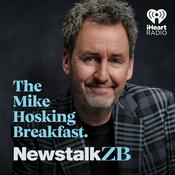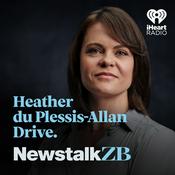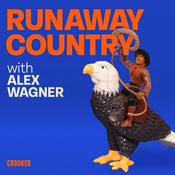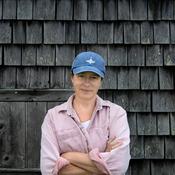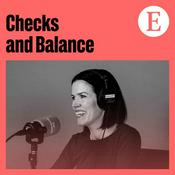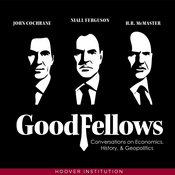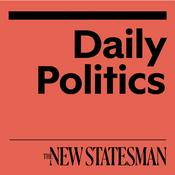116 episodes
- In this episode, Mike White, Chief Science Officer at Ravensdown, explains how Hawkeye Pro, the cooperative’s precision nutrient management platform, is helping New Zealand farmers apply the right nutrients in the right place at the right time. Drawing on years of research, soil science, and advanced technology, Mike outlines how Hawkeye Pro combines soil testing, remote sensing, farm-specific data, and AI to deliver measurable value while being considerate of the environment.
Guest:
Mike White, Chief Science Officer, Ravensdown
Host:
Sarah Perriam-Lampp, Editor-in-Chief, CountryWide
Mike explores practical applications of the platform, including its 100m²-level precision for dairy, sheep, and beef farms, seamless integration with farm systems, and decision-making tools that support both efficiency and compliance. He also discusses the potential productivity gains for farmers, highlights how Hawkeye Pro supports agri-managers in optimising farm performance, and outlines the future of precision nutrient management as the platform continues to evolve.
Become a CountryWide Club member for $89/year for six seasonal magazines including free postage (New Zealand only) annually: https://country-wide.co.nz/shop/
SUBSCRIBE TO THE COUNTRY-WIDE INSIDER WEEKLY EMAIL
See omnystudio.com/listener for privacy information. - In this special 100th episode, Sarah Perriam-Lampp reflects on the beginning of the CountryWide Podcast in 2024 and where it has evolved to now. She also looks towards the future and how this podcast will transform into a paid-only, members podcast for those with a CountryWide Club membership to reflect the new free podcast CountryWide Connect - home to the daily radio/video show coming at the end of March.
Host:
Sarah Perriam-Lampp, Editor-in-Chief, CountryWide
Become a CountryWide Club member for $89/year for six seasonal magazines including free postage (New Zealand only) annually: https://country-wide.co.nz/shop/
SUBSCRIBE TO THE COUNTRY-WIDE INSIDER WEEKLY EMAIL
See omnystudio.com/listener for privacy information. - In this episode, Jeremy McPhail, Chair of Environment Southland and seventh-generation Southland farmer, discusses the region’s community-led review of local government and what it could mean for the future of regional governance.
Guest:
Jeremy McPhail, Chair, Environment Southland
Host:
Andy Thompson, CountryWide
Jeremy shares why Southland moved early to explore structural change, the pressures driving reform including rising costs and infrastructure demands, and how the Local Government Commission is working with communities to identify the most effective and efficient model for delivering services. He also explains the importance of regional environmental oversight, the role of science and data in decision-making and why strong community engagement will be critical in shaping the future of local government in Southland.
Become a CountryWide Club member for $89/year for six seasonal magazines including free postage (New Zealand only) annually: https://country-wide.co.nz/shop/
SUBSCRIBE TO THE COUNTRY-WIDE INSIDER WEEKLY EMAIL
See omnystudio.com/listener for privacy information. - In this episode, Conan Moynihan, farm consultant at Force of Nature and host of the From the Soil Up podcast, reflects on what it means to be part of the next generation shaping New Zealand agriculture.
Guest:
Conan Moynihan, Host of From the Soil Up
Host:
Sarah Perriam-Lampp, Editor-in-Chief, CountryWide
Conan shares the realities of succession and land ownership, the tension between profitability and environmental limits, and why people sit at the centre of every successful farm system.
He also discusses how tools like AI and data can support better decision-making without replacing human judgement, observation and connection, and why progress in the sector is best achieved by creating space for open, balanced conversations rather than pushing to the extremes.
Read the article featuring Conan here.
Listen to the Force of Nature here: https://forceofnatureconsulting.com/podcast
Become a CountryWide Club member for $89/year for six seasonal magazines including free postage (New Zealand only) annually: https://country-wide.co.nz/shop/
SUBSCRIBE TO THE COUNTRY-WIDE INSIDER WEEKLY EMAIL
See omnystudio.com/listener for privacy information. - In this episode, James Laughlin, a high-performance coach, author of Habits of High Performers and host of the Lead on Purpose podcast, shares how principles of sustained high performance can be applied to farming. Drawing on his work with elite athletes, business leaders and rural clients, James explains why high performance is about consistently exceeding expectations while protecting wellbeing, relationships and long-term resilience.
Guest:
James Laughlin, Host of Lead on Purpose
Host:
Sarah Perriam-Lampp, Editor-in-Chief, CountryWide
James explores practical strategies including simplifying goals, focusing on what’s most important rather than most urgent, building strong boundaries, and adopting a “learn-it-all” mindset. He also discusses the mental health challenges facing the farming community, outlines simple frameworks for managing energy and wellbeing, and addresses how farmers can navigate criticism and tall poppy syndrome while continuing to grow, innovate and perform under pressure.
Read the article featuring James here.
Become a CountryWide Club member for $89/year for six seasonal magazines including free postage (New Zealand only) annually: https://country-wide.co.nz/shop/
SUBSCRIBE TO THE COUNTRY-WIDE INSIDER WEEKLY EMAIL
See omnystudio.com/listener for privacy information.
More News podcasts
Trending News podcasts
About The CountryWide Podcast
Bringing' you the best of rural New Zealand for nearly 50 years via your mailboxes, now it’s time for our seasonal stories from the magazine to weekly updates straight to your ears.
Proud to celebrate the grit and the smarts it takes to farm as well as good ol' fashioned country culture with The CountryWide Podcast.
Hosts: Sarah Perriam-Lampp - CEO & Editor-in-Chief at CountryWide Media
For more information & to subscribe to CountryWide, visit www.country-wide.co.nz
Podcast websiteListen to The CountryWide Podcast, The Mike Hosking Breakfast and many other podcasts from around the world with the radio.net app
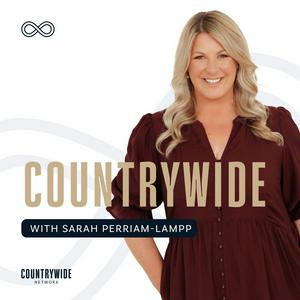
Get the free radio.net app
- Stations and podcasts to bookmark
- Stream via Wi-Fi or Bluetooth
- Supports Carplay & Android Auto
- Many other app features
Get the free radio.net app
- Stations and podcasts to bookmark
- Stream via Wi-Fi or Bluetooth
- Supports Carplay & Android Auto
- Many other app features


The CountryWide Podcast
Scan code,
download the app,
start listening.
download the app,
start listening.


